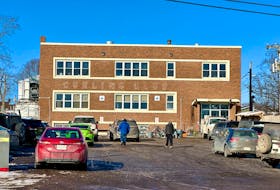Interestingly, not every country in the world was quick to recognize officially Joe Biden as the incoming U.S. president. Others, though, were anxious to be first in line, including Canada’s Justin Trudeau, to acknowledge the president-elect barely 40 minutes after the U.S. TV networks declared Biden the presidential election winner.
Countries like China, Turkey and Russia, however, were less than thrilled with the prospect of a Biden presidency. Indeed, the best that Moscow could muster was a statement from Russian President Vladimir Putin’s top spokesperson: “We believe it is correct to wait for the official results of the election that have taken place. I’d like to remind you that President Putin has repeatedly said that he will respect the choice of the American people whatever it may be.”
Yet, even Venezuela’s embattled leader, President Nicolás Maduro, managed to offer up some complimentary words for Biden’s electoral victory (and VP-elect Kamala Harris). He then went on to add: “Venezuela, the Homeland of the Liberator Simón Bolivar, will always be open to dialogue and understanding with the people and government of the United States.”
Perhaps the least surprising congratulatory acknowledgement came from Cuba’s President Miguel Díaz-Canel. He said that “we recognize that, in their presidential elections, the American people have chosen a new course.” His short tweet then stated: “We believe in the possibility of a constructive bilateral relationship that is respectful of differences.”
The Cuban government has obviously not fared well during the shambolic Trump years. From the very beginning, President Trump was adamant about transporting U.S.-Cuba relations back to the 1960s Cold War era. He was all-in on embracing the failed U.S. strategy of the past of mostly isolating, punishing, haranguing and threatening Cuba.
His administration moved to gradually dismantle many of the central elements of the Obama-Biden U.S.-Cuba accord (2014-16). In fact, he invoked damaging parts of the anti-Cuba Helms-Burton Law (all designed to discourage foreign investment in Cuba), slashed much-needed remittances from Cuban-Americans and restricted U.S. citizens from actually travelling to Cuba.
He also impeded the ability of Cubans to visit family members in Florida by closing down the consular section of the U.S. embassy in Havana after American diplomats (2018-2020) pointed to unexplained brain injuries—or what some refer to as the “immaculate concussion.”
Although there wasn’t anything specific about the so-called “Havana Syndrome” or the Cuban government in the foreign policy plank of Biden’s election platform, he certainly backed Barack Obama’s 2014 diplomatic entente with Havana. During the election campaign itself, the Biden-Harris ticket did say that it would swiftly reverse Trump’s hard-line approach to Cuba.
As far as they were concerned, Trump’s Cuba policy has only “inflicted harm on the Cuban people and done nothing to advance democracy and human rights.” According to one senior foreign policy adviser to the campaign, president-elected Biden wants to “empower” the Cuban people and “reverse the decisions that are separating families, limitations on family travel and remittances.”
Of course, it remains to be seen whether a Biden White House will be able to follow through on these pledges. Admittedly, a rapprochement with Cuba makes sense from an American economic, security, diplomatic and regional standpoint. But there will be plenty of roadblocks in Biden’s plan to “build back better” a new U.S.-Cuba relationship.
For one thing, the Biden-Harris team will be preoccupied with a trifecta of crises: runaway COVID-19 cases, a slumping economy and a simmering racial injustice challenge. It will also have to contend with a bitterly divided country and a Twitter-happy Donald Trump now fully unleashed. President Biden, then, will necessarily have to expend significant political capital to salve the U.S. domestic scene before he can turn his attention to various foreign policy initiatives.
It also bears repeating that the issue of U.S.-Cuban relations is not exactly top-of-mind for most Americans these days — or any other day. Accordingly, there is no robust political constituency in the U.S. that is aggressively pushing for Biden to significantly revamp relations with a struggling Cuba.
Most importantly, the Democrats were hugely disappointed that the Hispanic vote in Florida (especially Cubans and Venezuelans) did not come out strongly for Biden. Trump was able to hold onto Florida’s 29 electoral college votes, in part, by corralling the support of the Cuban-American community. So the last thing that Biden wants is for Republicans to incessantly point to a pro-Cuba White House that only confirms Trump’s highly effective campaign rhetoric about Democrats being “radical socialists.”
I’m sure that Biden and Harris can heal a polarized American polity and, simultaneously, mend fences abroad. But it won’t be easy. And I’m not convinced that the requisite political will needed to reconstitute the 2014 entente with Cuba will eventually materialize.
I do hope that I’m wrong, though.
Peter McKenna is professor of political science at the University of Prince Edward Island.









